Maternal and Newborn Care in the Time of COVID-19
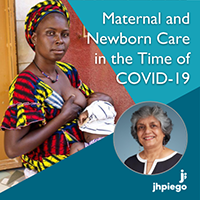
![]() Ce blog a été initialement publié sur le Jhpiego website.
Ce blog a été initialement publié sur le Jhpiego website.
In some of the most challenging areas for health, delivering high-quality care for all women should be the standard—before, during and after COVID-19. As the world struggles to adjust to life during a pandemic, maternal health needs don’t go away—they grow. Now more than ever, the health needs of women must be safeguarded.
In the three decades that I’ve worked to ensure high-quality, equitable health care for women and their children across the globe, this fact holds true: The health of a mother affects the health of her entire family. Whether she lives in Los Angeles, Lagos or Lahore, women today are worrying about how to care for themselves and their families when COVID-19 is impacting their community.
They are questioning whether to go to a health facility for their routine care and to give birth. They’re concerned about continued access to antenatal care and if their baby will get the care needed to survive the first week of life. And what about breastfeeding—is it still the best option?
As we navigate the rapid changes brought with COVID-19, there is comfort in knowing that four essential interventions for a healthy pregnancy and birth remain the same: antenatal care, delivery with a skilled birth attendant, breastfeeding and postnatal care.
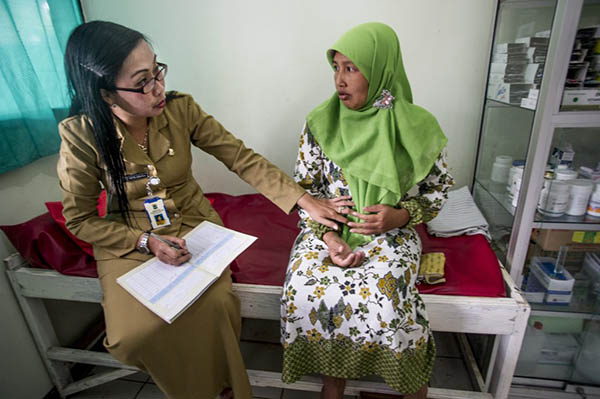
Because respiratory infections can more severely affect pregnant women, they must be diligent in protecting themselves against COVID-19 with frequent handwashing, social distancing and good respiratory hygiene (covering mouth and nose with a bent elbow or tissue when coughing or sneezing). They should also seek medical care early if fever, cough or difficulty breathing arise. Most maternal deaths in low- and middle-income countries could be prevented through expanded access to high-quality antenatal care. All pregnant women—including those with suspected or confirmed COVID-19—should continue to see a doctor or midwife to optimize healthy outcomes for both themselves and their newborn.
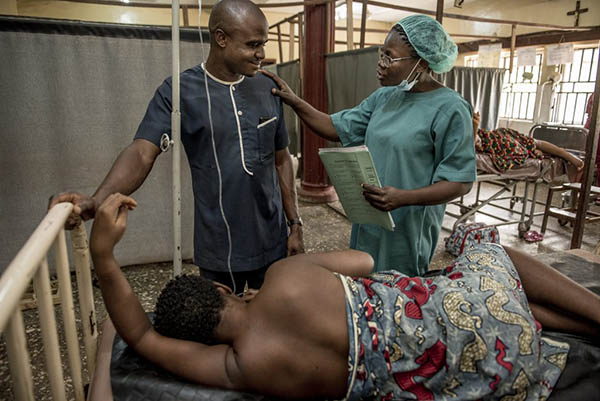
The risk of maternal death is highest during labor, birth and the first 24 hours following birth. Donc,, the safest place for a woman to deliver is at a functional health facility with a skilled birth attendant—even during a pandemic. By itself, COVID-19 infection in pregnancy is not a valid indication for cesarean delivery. All pregnant women have the right to a safe and respectful childbirth experience, including access to partner support. Having a birth companion of choice has proved key to increasing facility births, and it shouldn’t be taken away during this time of social distancing.
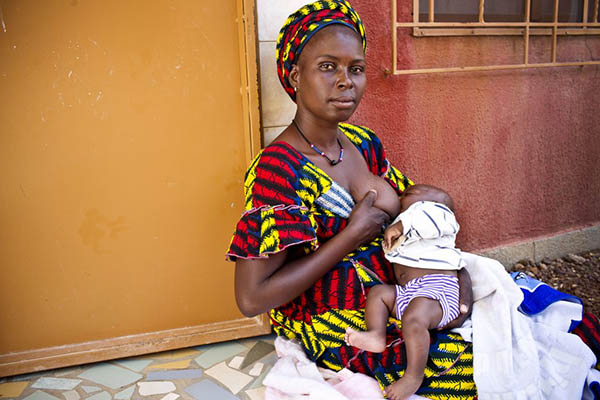
Breastfeeding—if done within the first hour of life, exclusively for the first 6 months and until age 2—has the greatest potential impact on child survival of all preventive health interventions. Thankfully, data indicate that COVID-19 is not found in breast milk, and all women are encouraged to breastfeed. Cependant, those with suspected or known COVID-19 infection should do so while taking precautions, such as wearing a mask and washing their hands before and after touching their baby. If a mother isn’t well enough to breastfeed, she should try to express her breast milk in a safe way.
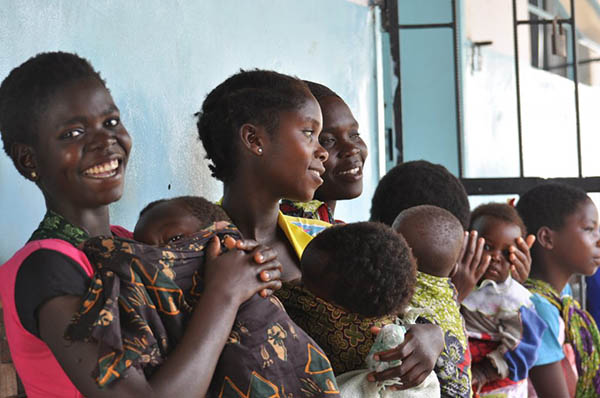
Even healthy mothers and newborns can face significant health risks in the days after childbirth. And while children show better resilience to COVID-19 than older adults, newborns may be more susceptible to COVID-19, making it imperative that postnatal care not be neglected as the prevalence of the virus grows around the world. All mothers and newborns should stay in the facility for at least 24 hours after birth to receive necessary health checks, counseling and care before discharge. This includes the provision of postpartum family planning counseling and services, and information on danger signs should symptoms of COVID-19 emerge once home.
There are many unknowns with this novel coronavirus but one certainty: It will challenge us all for months to come. Mitigating its effects on the most vulnerable families will require vigilant safeguarding of maternal health. From pre-pregnancy through postnatal care, we must shepherd women through this global health crisis, wherever they may live. This includes preventing gender-based violence, a public health issue experienced by one out of every three women worldwide, which tragically does not stop during a pandemic.
As we shore up health care systems and the global health workforce to weather the oncoming storm, we must also encourage self-care among individuals, helping communities to cope until the skies are clear.
A PROPOS DE L'AUTEUR
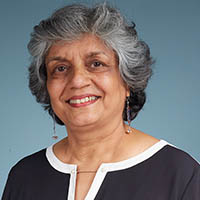 Koki Agarwal, MARYLAND, mi/h, DrPH, is an internationally recognized expert in safe motherhood, reproductive health, and family planning policies and programs, as well as promoting policy dialogue and advocacy for policy reform.
Koki Agarwal, MARYLAND, mi/h, DrPH, is an internationally recognized expert in safe motherhood, reproductive health, and family planning policies and programs, as well as promoting policy dialogue and advocacy for policy reform.
She has more than 25 years of service delivery experience in reproductive health, family planning, and maternal health, and for over two decades has led, géré, and implemented large-scale USAID-funded global health projects. Le Docteur. Agarwal is the Project Director of USAID’s MOMENTUM 2A and the Vice President of DC Operations for Jhpiego.




Réponses